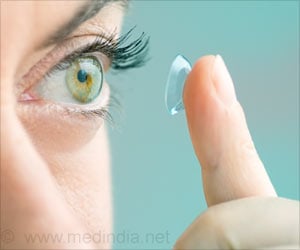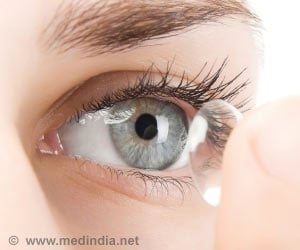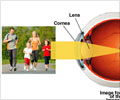
‘Contact lenses become effective and affordable means of vision correction when wearers follow simple measures like removing them while sleeping or swimming, replacing them at regular intervals and not reusing the cleaning solution, to prevent infections.’
Tweet it Now
To be sure, these were likely the worst of the worst of these types of infection and can't be considered representative of contact lens infections overall. But of those reports, almost 20% described a patient with injuries resulting in decreased vision or a corneal scar, or requiring a corneal transplant. The study was published in Morbidity and Mortality Weekly Report (MMWR).“Contact lenses are a safe and effective form of vision correction when worn and cared for as recommended,” said Michael Beach, Ph.D., director of CDC’s Healthy Water Program. “However, improper wear and care of contact lenses can cause eye infections that sometimes lead to serious, long-term damage.”
And the risk factors for these serious cases of keratitis, inflammation of the cornea, are the same as for more common, less serious cases, says Thomas Steinemann, a clinical spokesman for the American Academy of Ophthalmology and practicing ophthalmologist at Metro Health Medical Center in Cleveland. Corneal infections prompt about 1 million clinic and ER visits a year, and contact lens use is the top risk factor, he says.
More than 10% of the reports indicated that the patient went to an emergency department or urgent care clinic for immediate care. Whether eye infections are minor or lead to long-lasting damage, they can be painful and disrupt daily life. For instance, the reports describe patients’ daily visits to an eye doctor or hourly administration of eye drops to treat the infection.
More than 1 out of 4 reports of infections mentioned easily avoidable behaviors that increase the chance of getting an eye infection, such as wearing contact lenses while sleeping and wearing them longer than recommended.
Advertisement
Not throwing them out or not replacing them when you're supposed to is another risk factor and was associated with 8% of the reported infections.
Advertisement
Previous research has suggested that only about 2% of contact lens wearers follow the rules for safe contact lens use. Other false practices are showering and swimming with your lenses in and hanging on to your storage case for too long. Sharing contact lens can also prove hazardous.
Also, it should be obvious that contacts should be acquired through the proper medical channels from a trusted source. But in 1.5% of the reports, the lenses were bought from "an unapproved source such as a flea market or costume shop."
"Used properly, [contacts are] a very, very successful and safe method of correcting vision, says Steinemann. "But [they are] not without responsibility."
The findings in this report highlight the need for contact lens wearers to take good care of their lenses to help prevent contact lens-related eye infections.
Source-Medindia















